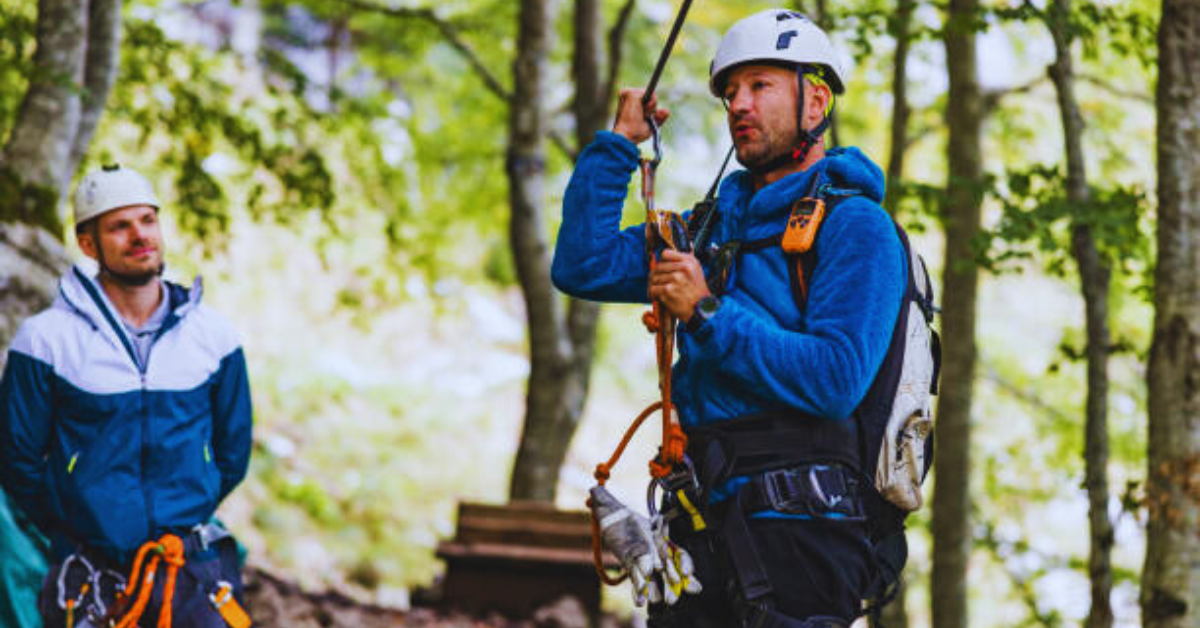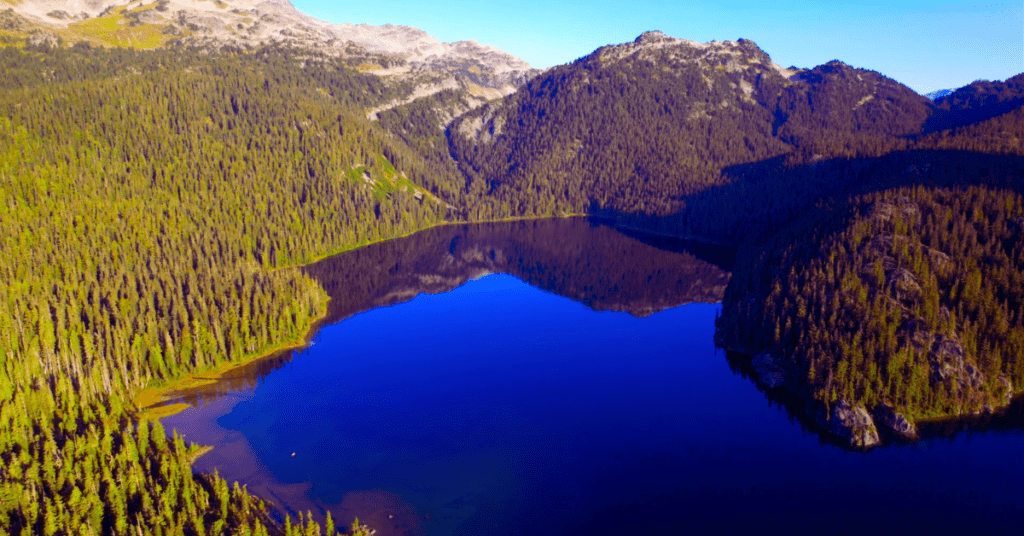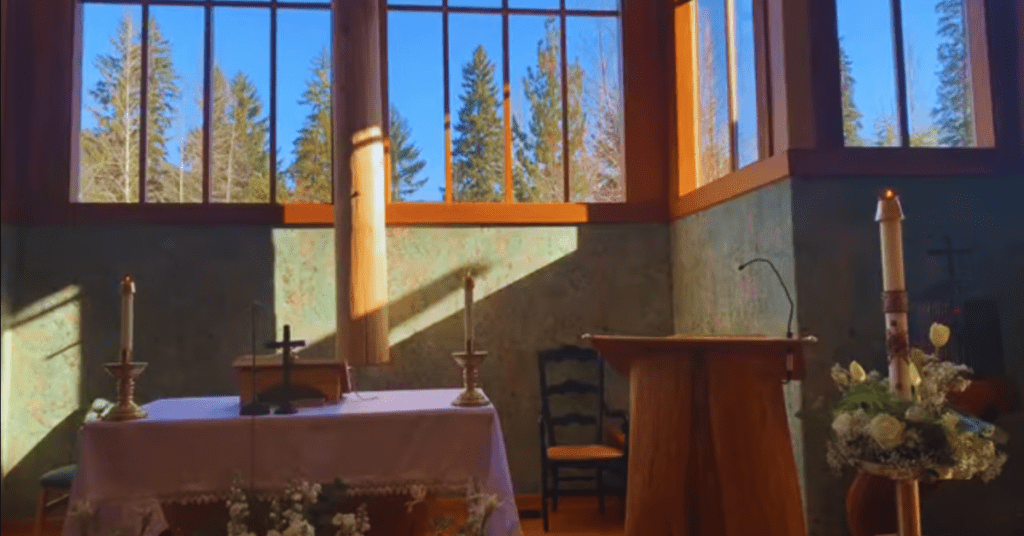Adrenaline Rush: Job Opportunities for Adventure Seekers in Whistler
1. Ski and Snowboard Instructor
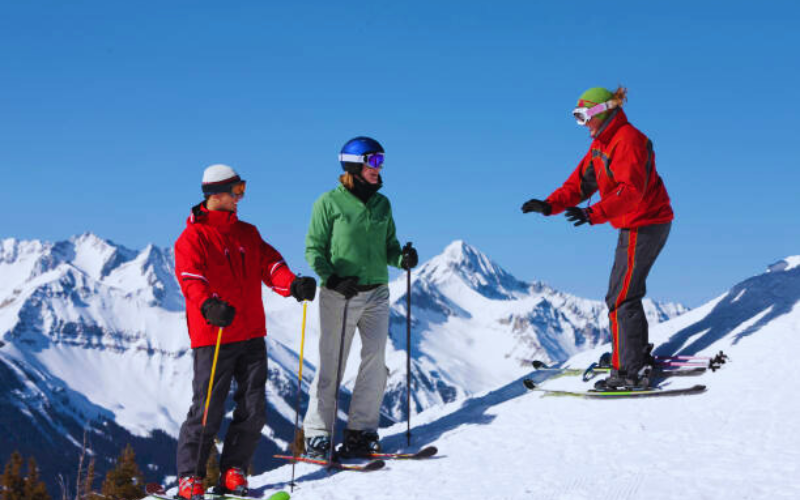
Qualifications and certifications required
To become a ski or snowboard instructor in Whistler, you’ll need to get certified. The Canadian Ski Instructors’ Alliance (CSIA) for skiing and the Canadian Association of Snowboard Instructors (CASI) for snowboarding offer various levels of certification. Most resorts require at least a Level 1 certification to start teaching.
Daily responsibilities and challenges
As an instructor, you’ll spend your days on the slopes teaching people of all ages and skill levels. You might find yourself helping a first-timer conquer the bunny hill or guiding advanced riders through challenging terrain. One of the biggest challenges is adapting your teaching style to suit different learners.
Perks and benefits of the job
The best part? You get to ski or snowboard every day! Plus, you’ll usually get a free season pass, discounts on gear, and the chance to meet people from all over the world. I remember my first season as an instructor – nothing beats the feeling of helping someone fall in love with the mountains.
2. Mountain Bike Guide

Essential skills and experience
To be a mountain bike guide in Whistler, you need to be an experienced rider with excellent bike handling skills. Knowledge of local trails, basic bike mechanics, and first aid are must-haves. Many guides start as passionate riders and gradually build up their skills and knowledge.
Seasonal work schedule and peak times
Mountain biking in Whistler is primarily a summer activity. The Whistler Bike Park typically opens in May and closes in October, with peak season being July and August. During these months, you might work long hours, but the rest of the year could be pretty quiet.
Safety protocols and risk management
Safety is paramount in mountain biking. As a guide, you’ll need to assess trail conditions, check clients’ abilities, and ensure everyone has proper safety gear. You’ll also need to know how to handle emergencies on the trail. I once had to help a client with a minor injury – it really drove home the importance of being prepared for anything.
3. Zipline Tour Guide
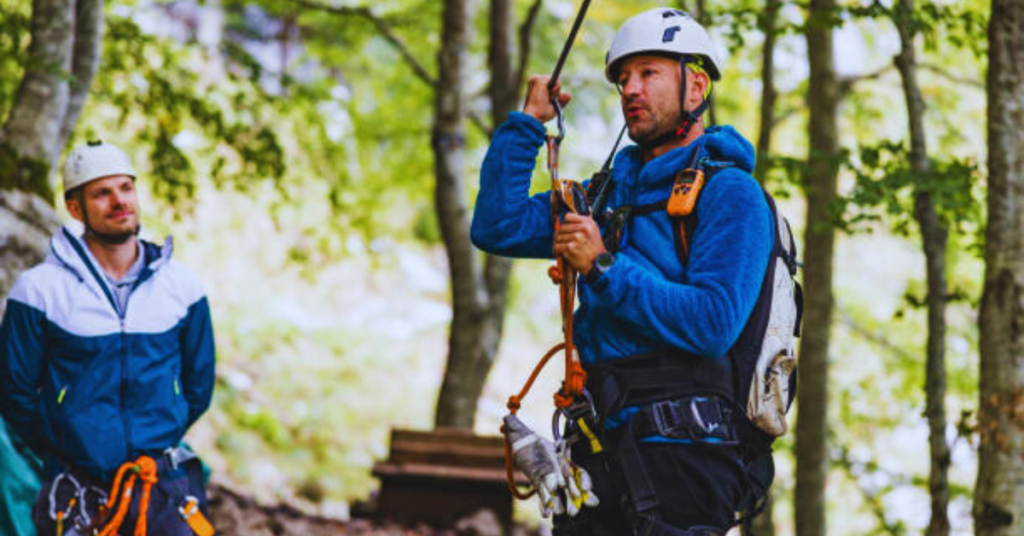
Training and safety certification process
Becoming a zipline tour guide involves extensive training. You’ll learn about the equipment, safety procedures, and rescue techniques. Most companies require guides to be certified in first aid and CPR. The training process can take several weeks, but it’s crucial for ensuring everyone’s safety.
Customer interaction and group management
As a zipline guide, you’re not just responsible for safety – you’re also an entertainer! You’ll need to be good with people, able to calm nervous participants, and keep the energy high. Managing groups of different sizes and demographics is a key part of the job.
Physical demands and fitness requirements
This job keeps you on your toes. You’ll be on your feet all day, climbing towers, and sometimes performing rescues. Good physical fitness is essential. I found that my first few weeks were exhausting, but my body quickly adapted to the demands of the job.
4. Whitewater Rafting Guide
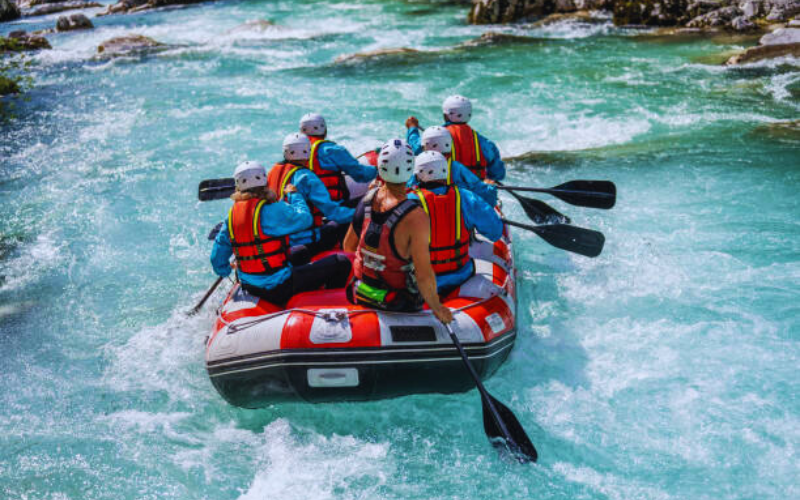
River knowledge and navigation expertise
To be a rafting guide, you need to know your rivers inside and out. This includes understanding water levels, recognizing hazards, and knowing the best lines to take. Many guides start as assistants or “swampers” to gain experience before taking the lead.
Equipment maintenance and safety checks
Before each trip, you’ll need to check and maintain all equipment. This includes inspecting rafts, paddles, and personal flotation devices. It’s a big responsibility – the safety of your clients depends on your attention to detail.
Handling emergency situations on the water
Whitewater can be unpredictable, so you need to be prepared for anything. This might include rescuing swimmers, flipping overturned rafts, or providing first aid. Regular training and practice scenarios help keep these skills sharp.
5. Rock Climbing Instructor
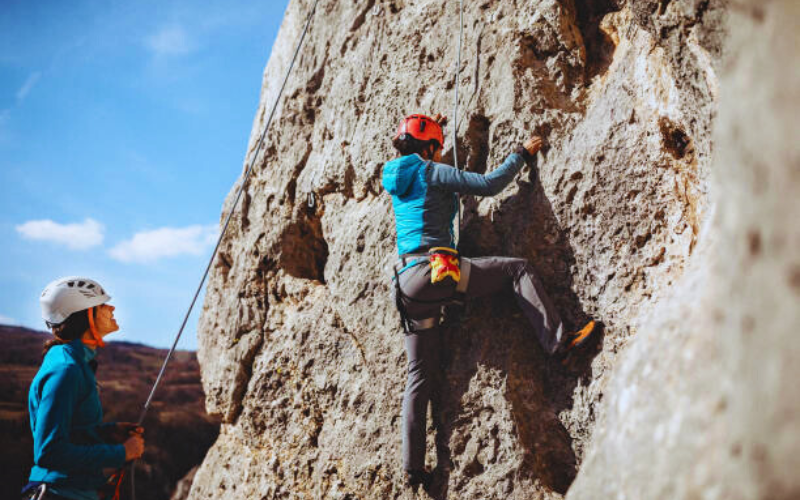
Technical skills and climbing certifications
Rock climbing instructors need a solid foundation of climbing skills and safety knowledge. Certifications from organizations like the Association of Canadian Mountain Guides (ACMG) are often required. These cover everything from rope work to rescue techniques.
Teaching techniques for various skill levels
Whether you’re working with first-time climbers or experienced ones looking to improve, you need to adapt your teaching style. This might involve breaking down complex moves, offering encouragement, or providing subtle tips to help climbers push their limits.
Indoor vs. outdoor instruction differences
While the basic skills are the same, teaching indoors and outdoors can be quite different. Indoor climbing is more controlled, while outdoor climbing introduces variables like weather and route-finding. As an instructor, you need to be comfortable in both environments.
6. Heli-Ski Guide
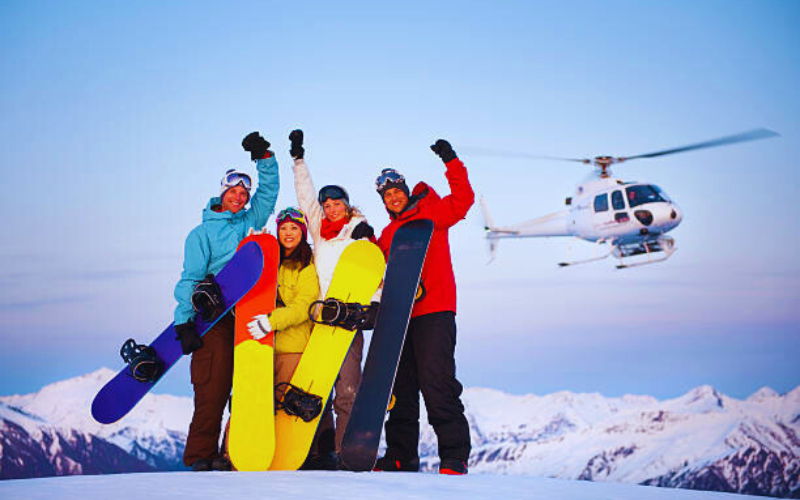
Advanced skiing abilities and avalanche training
Heli-ski guides need to be expert skiers and have extensive avalanche training. This usually includes completing courses like Avalanche Skills Training (AST) and Avalanche Operations Level 1 and 2. The responsibility of keeping clients safe in the backcountry is huge.
Coordination with pilots and weather monitoring
A big part of heli-skiing is working closely with pilots and constantly monitoring weather conditions. You need to be able to make quick decisions about whether it’s safe to fly and ski. I’ve had days where we’ve had to cancel trips due to poor visibility – it’s always safety first.
Client assessment and terrain selection
As a guide, you need to quickly assess your clients’ abilities and choose appropriate terrain. This requires good judgment and the ability to read people. You want to provide an exciting experience while keeping everyone safe.
7. Glacier Tour Guide
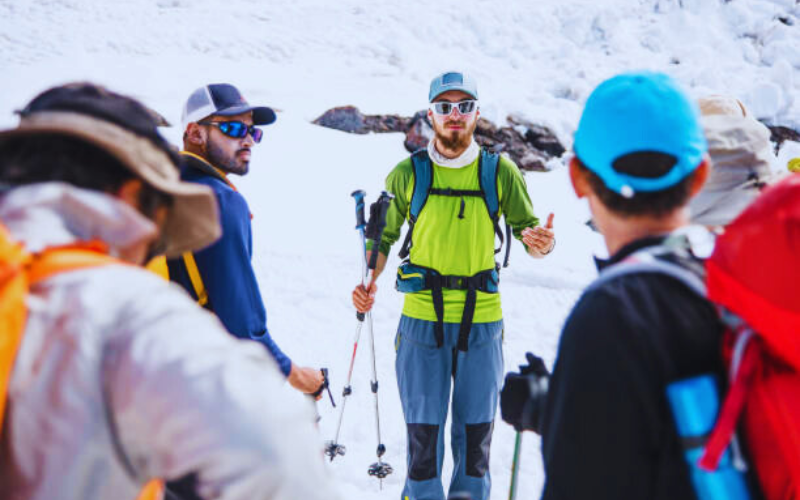
Glaciology knowledge and environmental awareness
As a glacier guide, you need a solid understanding of glaciology and how glaciers form and move. You’ll also need to be aware of the impacts of climate change on glacial environments. This knowledge helps you educate clients and ensure safe travel on the ice.
Ice climbing and crevasse rescue techniques
Guiding on glaciers requires specialized skills like ice climbing and crevasse rescue. You’ll need to be proficient with equipment like ice axes and crampons, and know how to set up rescue systems. Regular practice is crucial to keep these skills sharp.
Educating clients on climate change impacts
Part of your role as a glacier guide is to educate clients about the environment they’re exploring. This often includes discussing the impacts of climate change on glaciers. It’s a chance to raise awareness about environmental issues in a very tangible way.
Summary
Whistler offers a wealth of opportunities for adventure seekers looking to turn their passion into a career. From the snowy slopes to rushing rivers and towering peaks, there’s something for every type of thrill-seeker. These jobs not only offer excitement but also the chance to share your love of the outdoors with others.
Frequently Asked Questions
What are the typical salary ranges for these jobs?
Salaries can vary widely depending on experience, certification level, and the specific employer. Many of these jobs are seasonal, with earnings concentrated in peak months. For example, ski instructors might earn $15-$25 per hour, while heli-ski guides can earn significantly more due to the specialized nature of their work.
Are these positions seasonal or year-round?
Many adventure jobs in Whistler are seasonal due to the nature of the activities. Winter sports jobs like ski instructing are busy from November to April, while summer activities like mountain biking peak from May to October. Some positions, like Wilderness First Responder, may offer year-round opportunities.
How can I gain experience for these adventure jobs?
Start by pursuing your own outdoor adventures and building your skills. Many people begin in entry-level positions and work their way up. Volunteering for outdoor organizations or events can also provide valuable experience. Obtaining relevant certifications is often a key step in qualifying for these roles.

